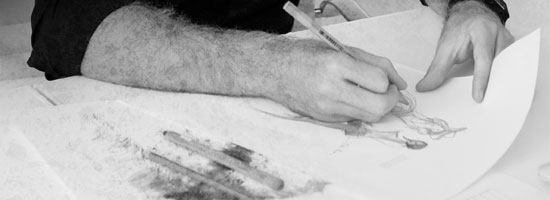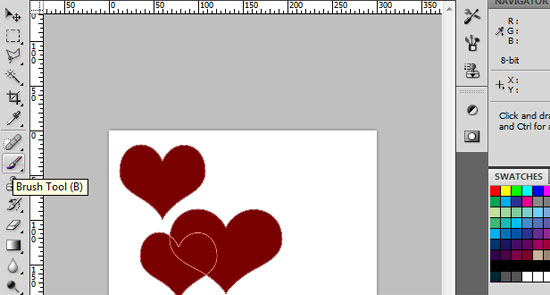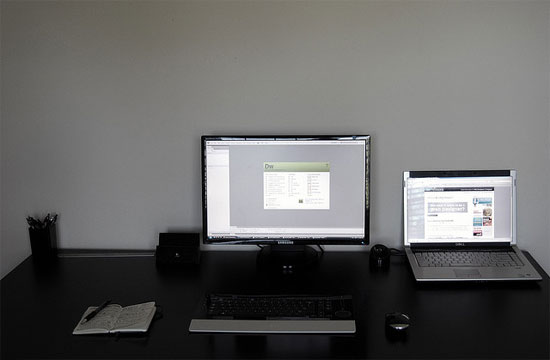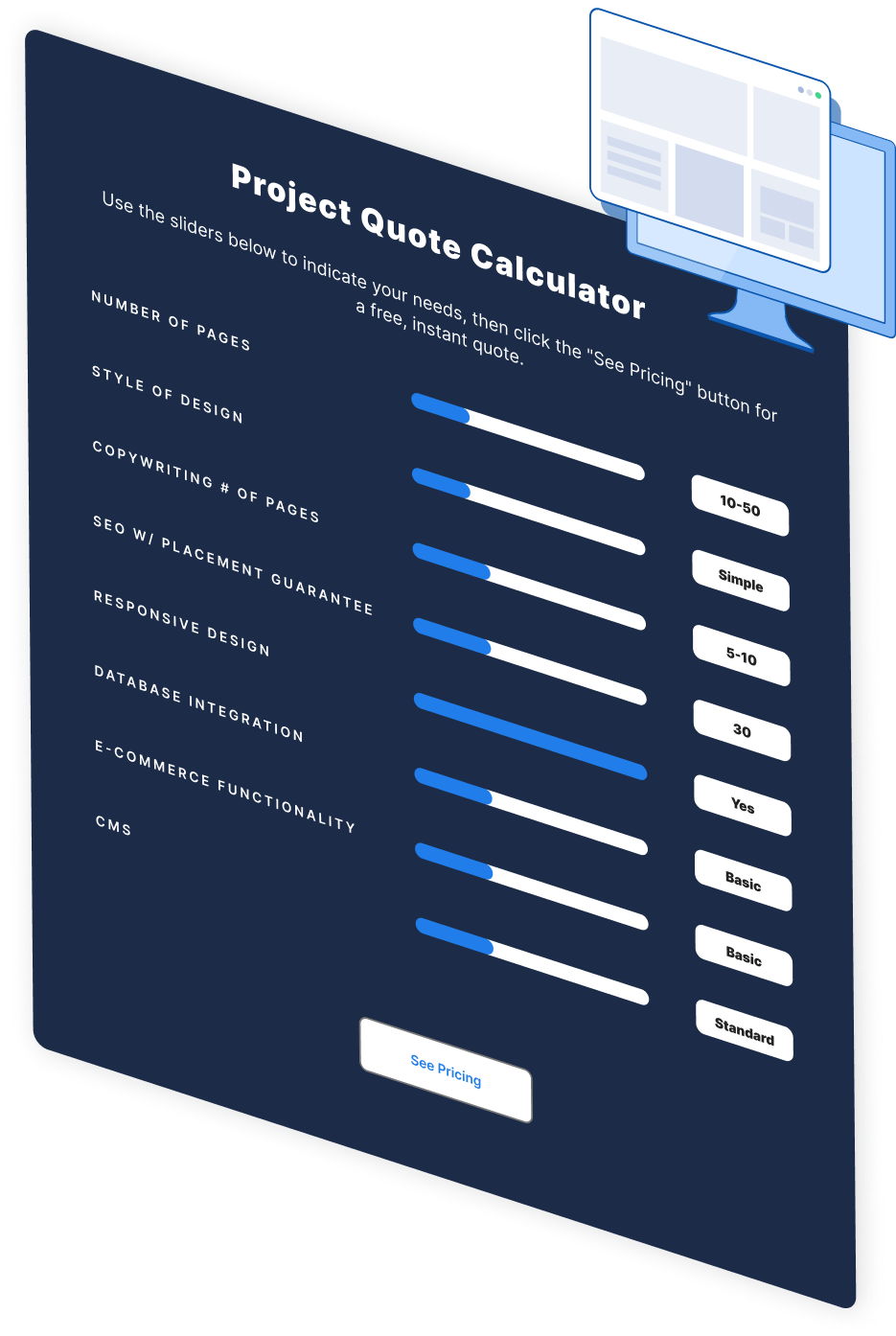- Home
- Blog
- Web Design 10 Reasons You Shouldn’t Be a Designer
10 Reasons You Shouldn’t Be a Designer
-
 8 min. read
8 min. read
-
 William Craig
William Craig CEO & Co-Founder
CEO & Co-Founder
- President of WebFX. Bill has over 25 years of experience in the Internet marketing industry specializing in SEO, UX, information architecture, marketing automation and more. William’s background in scientific computing and education from Shippensburg and MIT provided the foundation for MarketingCloudFX and other key research and development projects at WebFX.
 Did you know that becoming a designer is relatively easy? You go to school (some people even skip that part), you interview for a job or start your own freelancing business, and then you start getting paid in exchange for making stuff look cool. That’s about it.
Did you know that becoming a designer is relatively easy? You go to school (some people even skip that part), you interview for a job or start your own freelancing business, and then you start getting paid in exchange for making stuff look cool. That’s about it.
Or is it? Becoming a great designer — like becoming great at anything — takes a lot of practice, hard work and dedication. Maybe you are a student wondering if a design major or minor is the right way to go.
Or maybe you are already a designer but you’re wondering whether a career as a designer is really right for you. If you get through reading this article and find a couple reasons why you shouldn’t be a designer, it’s probably no big deal. If, on the other hand, you find that the huge number of these reasons apply to you, you may want to re-think design as a career.
1. You’re Not Artistic
I know this seems like a no-brainer, but it’s worth discussing. Some people have the mentality that designers and artists fall into two completely different, only vaguely related categories. In reality, that type of thinking couldn’t be farther from the truth.
Designers are artists — or at least they should be. Just because so much of what designers do these days takes place on a computer doesn’t mean there is no art involved in the modern day design process.  Many of the best logo and website designs start as sketches on a blank piece of paper.
Many of the best logo and website designs start as sketches on a blank piece of paper.
If you take the time to notice, you will see that many of the software applications designers use take cues directly from the art world. For instance, Photoshop and Illustrator — industry-standard software in the design field — both have painting-inspired features and vocabularies.
2. You Don’t Have Passion for Design
To be a great designer, you’ve got to have passion for creating things. Having passion is more than just liking or tolerating something. Passion pulls you in full-throttle, and makes you thirsty for more.
If you aren’t incredibly passionate about becoming a designer, don’t become one. Burnout is a big obstacle for many designers; just wait until you’ve been working on the same type of project for months on end. That’s when you start to feel burned out and that’s when your passion will fuel you to push forward.
3. You’re Easily Distracted and Have a Hard Time Meeting Deadlines
Design requires the ability to focus, oftentimes for long periods at a time. It’s not to say that people with ADHD can’t be good designers as many believe that individuals with ADHD can hyperfocus on things they’re interested about — which is a big plus. Are you planning on working for a local advertising agency? Ask yourself if you can sit through the time required to tediously and meticulously add realistic shading, remove skin blemishes, tweak typography and play with color combinations on an ad piece or a poster design until you reach pixel-perfection, sometimes over a weekend to meet a deadline.
Don’t get me wrong, design isn’t all work and no play, but there are times when you’ll need to concentrate hard on finishing a task for an extended period of time.
4. You’re Not a Good Communicator
How well do you get along with people? Do you work well in groups? If these questions sound familiar, you must have applied for a job sometime in the last few years.
Business owners are putting a premium on communication skills these days, and it’s really no different for designers. There are times when you’ll be working solo, but there will also be times when you’ll need to collaborate, take orders, give orders, and so forth. When I say you need to be a good communicator to be a good designer, I’m not talking solely about being able to effectively talk to clients and people you collaborate with.
I’m also talking about the medium of the work itself. After all, design is essentially a form of communication — the only difference is that design is visual instead of verbal.
5. You Don’t Respond Well to Criticism
When someone tells you there is room for improvement, do you feel the urge to punch them in the face? Criticism — and the ability to incorporate insights gleaned through critiques of your work into your projects to make them better — is an everyday part in design. Obviously, you can’t go around punching people in the face all day, so do you have what it takes to understand the role that criticism plays in design?
Nobody likes to be told their ideas are no good, but sometimes it’s not worth arguing. If you are a freelancer, for example, your client (who is not a designer) may want to make some changes that don’t work well, or give you some harsh (even if inaccurate) criticisms. It’s best to roll with the punches so you can get paid for that project.
Alternatively, if you work as an in-house designer, your superiors are probably going to be standing over your shoulder telling you what works and what doesn’t (even if you don’t agree). It will take time to work your way up the ladder until you are the one who calls the shots — in the meantime, can you take the heat?
6. You’re Bad at Brainstorming
Designers need brainstorms like koalas need eucalyptus — without the ability to brainstorm effectively, you’re as good as dead. Every design starts as an idea. Originality is everything in the design world.
Even the best designers get stuck at times, but the truly great ones drive a mental bulldozer right through any roadblocks and keep going strong. So, if you’re driving a mental tank, you’ll make a great designer, but if you’re riding in a mental clown car…
7. You’re Always Disorganized
Designing requires good organizational skills. Surprised? You shouldn’t be.
It all starts with your workspace. If you work in an organized environment where your stuff is easily found, you’ll be more productive. But it doesn’t end there.
 You’ve got to organize your schedule as well, but there’s more, much more — design itself is an organizational task. You’ve got to organize information in a way that makes sense to people who view your designs. Design is, to a large extent, the art and science of visual organization.
You’ve got to organize your schedule as well, but there’s more, much more — design itself is an organizational task. You’ve got to organize information in a way that makes sense to people who view your designs. Design is, to a large extent, the art and science of visual organization.
8. You’re Lazy
Laziness is the enemy of good design. Students, I hate to break it to you, but gone are the summers where the most important thing to do was catch up on daytime television. Once you graduate from college, you’re going to be working full time.
If you choose design as a career, you’re going to have tasks to accomplish (surprise, surprise). It’s something like schoolwork except if you don’t “turn it in” on time, you’ll get an F for Fired. It’s that simple, really.
If you want to get paid as a professional designer, you have to work. And you can’t just work, you have to do good work. To do good work, you have to practice, put in the hours and not give up.
9. You Hate Not Being Physically Active on the Job
Designing is not running. It’s not swimming, it’s not hiking, it’s not snowboarding. It’s not a physically strenuous job.
You’ll spend the majority of your day in a chair getting to know your computer monitor, mouse, keyboard and pen tablet a little better.  If you want to maintain your physical fitness, you’ll have to do that on your own time.
If you want to maintain your physical fitness, you’ll have to do that on your own time.
10. You Don’t Like Learning
If you barely survived college — and let’s be honest here, it’s literally not rocket science, design is one of the world’s easiest majors — you may not like what I’m about to say next. Design requires a lifetime of constant learning to maintain relevance. Some people enjoy learning (especially if they are passionate about what they do for work), but others shy far, far away from it.
New versions of programs are always just around the corner, new technologies are born and designers must learn how to create for new mediums all the time. Learning new things and changing your set ways (if having set ways is even an option as a designer) is a huge part of the job.
Some Parting Words
Design, like any profession, takes dedication.
You should only consider a career as a designer if you are truly passionate about design, have strong communication skills, can organize yourself and information and love to learn new things. What are other traits that designers can’t afford to have? Share your thoughts in the comments.
Related Content
- Five Reasons Why You Shouldn’t Expand Your Design Business
- Why Designers Should Learn How to Code
- How to Design for Your Worst Client: You.
-
 President of WebFX. Bill has over 25 years of experience in the Internet marketing industry specializing in SEO, UX, information architecture, marketing automation and more. William’s background in scientific computing and education from Shippensburg and MIT provided the foundation for MarketingCloudFX and other key research and development projects at WebFX.
President of WebFX. Bill has over 25 years of experience in the Internet marketing industry specializing in SEO, UX, information architecture, marketing automation and more. William’s background in scientific computing and education from Shippensburg and MIT provided the foundation for MarketingCloudFX and other key research and development projects at WebFX. -

WebFX is a full-service marketing agency with 1,100+ client reviews and a 4.9-star rating on Clutch! Find out how our expert team and revenue-accelerating tech can drive results for you! Learn more
Make estimating web design costs easy
Website design costs can be tricky to nail down. Get an instant estimate for a custom web design with our free website design cost calculator!
Try Our Free Web Design Cost Calculator


Web Design Calculator
Use our free tool to get a free, instant quote in under 60 seconds.
View Web Design CalculatorMake estimating web design costs easy
Website design costs can be tricky to nail down. Get an instant estimate for a custom web design with our free website design cost calculator!
Try Our Free Web Design Cost Calculator




